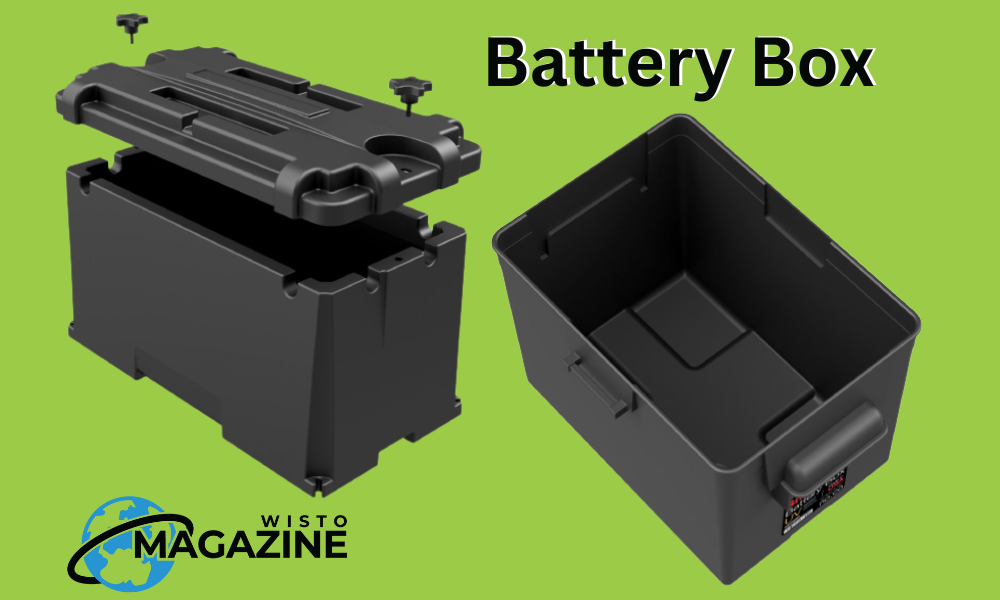In an increasingly connected world, the need for reliable power sources in remote areas or off-grid locations has become imperative. Enter the portable battery box, a versatile solution designed to deliver power for various applications in remote settings. Whether for camping, outdoor events, off-grid living, or emergency backup, these portable battery boxes have revolutionized the way we harness and utilize power in challenging environments.
Understanding the Portable Battery Box
Design and Structure: Portable battery boxes are compact, durable containers designed to house batteries and associated components in a safe and easily transportable manner. They are constructed using materials like rugged plastics, aluminium, or steel, ensuring protection against environmental elements.
Battery Compatibility: These boxes accommodate different types of batteries, such as lithium-ion, lead-acid, or even solar-powered batteries, providing flexibility in power options based on the user’s requirements.
Built-in Features: Many modern portable battery boxes come equipped with various features, including built-in inverters, USB ports, DC outlets, and even solar charge controllers, allowing for multiple devices to be powered simultaneously.
Advantages of Portable Battery Boxes for Remote Use
Mobility and Versatility: Their lightweight and compact design makes them easily transportable, enabling users to carry power wherever they go. They can be used for camping, outdoor adventures, scientific expeditions, or even in construction sites without access to mains electricity.
Reliable Power Source: Offering a stable and consistent power supply, these battery boxes ensure the continuous operation of essential devices and equipment in remote locations, providing a sense of security and convenience.
Off-grid Independence: For off-grid living or remote setups, portable battery boxes paired with solar panels or other renewable energy sources provide a sustainable and independent power solution, reducing reliance on traditional power grids.
Utilizing Portable Battery Boxes in Remote Applications
Camping and Outdoor Activities: Portable battery boxes have become indispensable for campers, providing power for lighting, charging electronic devices, running coolers, and even operating small appliances, enhancing the outdoor experience.
Emergency Preparedness: In emergencies or during power outages, these boxes act as backup power sources for essential medical equipment, communication devices, lighting, and more, ensuring safety and functionality.
Remote Work and Research: Researchers, scientists, and professionals working in remote areas heavily rely on portable battery boxes to power equipment, laptops, communication devices, and scientific instruments necessary for their work.
Optimizing Portable Battery Box Usage
Proper Charging Practices: Follow manufacturer recommendations for charging and maintenance to ensure optimal battery performance. Utilize solar charging or mains power as available to keep the battery charged.
Capacity Management: Understand the battery box’s capacity and manage power consumption accordingly to avoid overloading or draining the battery excessively.
Regular Maintenance: Keep the box clean, inspect connections, and ensure the battery remains in good condition. This includes occasional reconditioning or equalizing of batteries if necessary.
Q1: What exactly is a portable battery box?
A portable battery box is a compact and durable container designed to house batteries and related components, providing a mobile power source for various applications, especially in remote or off-grid settings.
Q2: What types of batteries are compatible with portable battery boxes?
Portable battery boxes accommodate different types of batteries, including lithium-ion, lead-acid, or solar-powered batteries, offering users flexibility in choosing power sources based on their specific needs.
Q3: How portable are these battery boxes?
These boxes are designed for mobility, typically being lightweight and compact, allowing users to transport them easily to remote locations for camping, outdoor activities, emergencies, off-grid living, research expeditions, and more.
Q4: Can portable battery boxes charge multiple devices simultaneously?
Many modern portable battery boxes are equipped with built-in features like inverters, USB ports, DC outlets, and solar charge controllers, enabling simultaneous charging of multiple devices and enhancing their versatility.
Q5: What are the primary advantages of using portable battery boxes in remote applications?
The key advantages include their mobility, providing a reliable power source in off-grid areas, supporting various applications such as camping, emergency preparedness, remote work, research expeditions, and offering sustainable power solutions.

